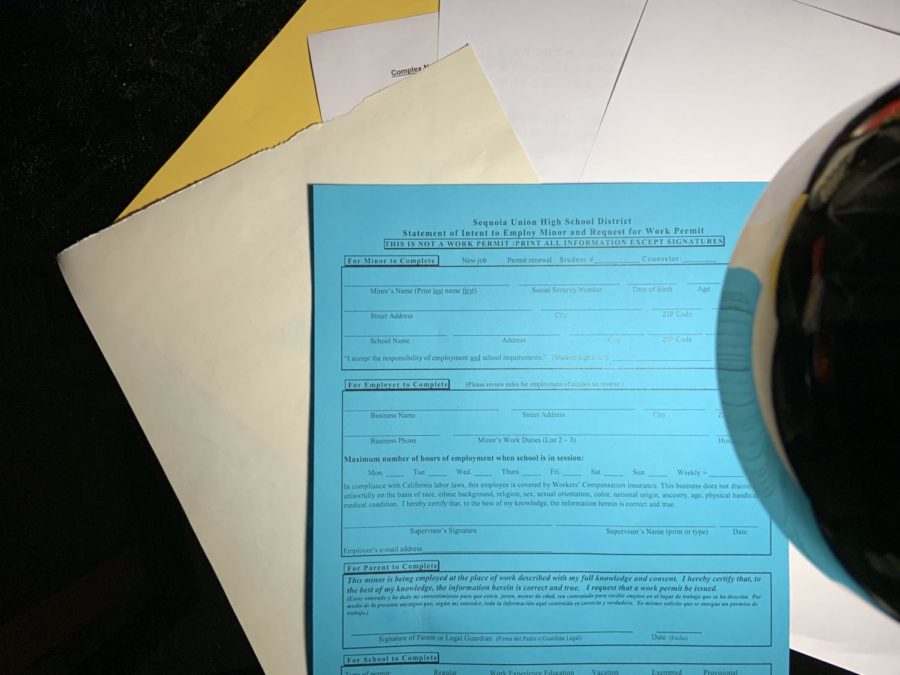As the 2018-2019 school year comes to an end, many Carlmont students prepare for another summer of work and internships, while some debate whether or not to invest their time in the coming vacation with summer jobs.
In this academic year alone, approximately 250 new work permits were issued by the school. The largest employers of Carlmont students included Bay Club and In-N-Out Burger.
John Rowe, Carlmont Intro to Business and Work Experience teacher, manages and issues Carlmont’s work permits. According to Rowe, the number of permits issued this and the past few years has likely maintained approximately the same.
But approaching the data from a wider scope nationwide and across decades, one can see a dramatic change in the popularity of summer jobs amongst teenagers.
According to The Atlantic, 60% of American teens were working or looking for work in the summer of 1978. In the summer of 2016, 35% of teens were.
Even disregarding summer labor, the decline is clear. In April 2019, 34% of teens were working, but 20 years ago, 52.1% were in the workforce in April 1999.
Regardless, Carlmont has its fair share of student workers.
Sophomore Jack Maurry plans to work lifeguard shifts at a nearby Bay Club over the summer and assisting a bioprinting education company as an unpaid intern.
“Working gets me ready for an actual commitment, it shows you’re a responsible individual to colleges and employers,” Maurry said.
Maurry believes that students should pursue summer jobs that address their career or personal interests.
“I think that you should work towards a job you personally want to do, like an internship,” Maurry said.
Raven Grinker, a Carlmont senior, is looking forward to working in a paid internship position for a biotech company over the summer.
“I hope to gain a lot more experience in the respective field and get references for future careers,” Grinker said.
Grinker believes students should try to pursue work, but only if their academic responsibilities permit them to.
Carlmont has also led efforts to support and promote student work.
Rowe’s Work Experience class meets every Monday to discuss work and finance. Participants have an opportunity to earn units to fulfill the graduation requirement, gaining one unit for every 10 hours worked.
Carlmont’s business program has been reaching out to local businesses to find opportunities for their students. Rowe even recently recommended intern candidates at Carlmont to an internship program at San Francisco International Airport.
“There’s a lot to benefit from working. A lot can be learned, and there are also many basic life lessons students can learn in an entry-level job like dedication, responsibility, and compassion. Students should also try to find something they’re interested in, and get to learn about that specific field. I think the vast majority of high school students benefit from having some work experience,” Rowe said.
As a student, Rowe himself worked his first job at a nursery and advises students on how to approach and maintain their jobs.
“Everyone should take their job as seriously as possible, no matter big or small. It can come back to haunt you at your next opportunity for employment,” Rowe said.


